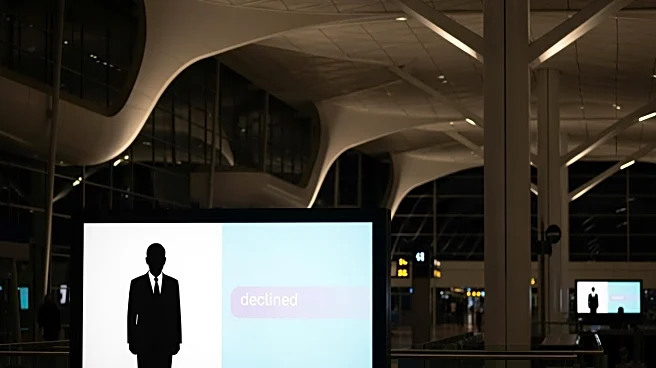What's Happening?
Minneapolis-St. Paul International Airport (MSP) is among several U.S. airports that have chosen not to display a video from Homeland Security Secretary Kristi Noem. The video, which blames Democrats for
the ongoing government shutdown, was intended to be shown at airport checkpoints nationwide. DHS Assistant Secretary Tricia McLaughlin stated that TSA's priority is to ensure a safe and efficient airport experience, despite the shutdown's impact on TSA employees working without pay. The refusal to air the video reflects a broader trend among airports to avoid political messaging in their facilities.
Why It's Important?
The decision by MSP and other airports to reject the video underscores the importance of maintaining neutrality in public spaces, particularly during politically sensitive times. The government shutdown has significant implications for airport operations, with potential disruptions in security and flight schedules due to staffing shortages. The situation highlights the challenges faced by federal employees, including TSA agents and air traffic controllers, who continue to work without pay. The refusal to air the video also raises questions about the ethical considerations of using government platforms for partisan messaging.
What's Next?
As the shutdown persists, airports may experience increasing operational challenges, including longer security lines and potential flight delays. The Federal Aviation Administration has indicated it may reduce the number of flights if staffing issues continue. The ongoing political dispute over the shutdown could lead to further disruptions in airport operations, affecting travelers nationwide. Stakeholders, including airport authorities and government agencies, will need to navigate these challenges while maintaining service levels and public trust.
Beyond the Headlines
The refusal to air the video raises broader questions about the role of political messaging in public spaces and the ethical considerations of using government platforms for partisan purposes. The situation also highlights the potential legal implications of political activities by federal employees, as some experts suggest the messaging could violate the Hatch Act. This development may prompt discussions on the balance between free speech and operational policies in government-run facilities.








